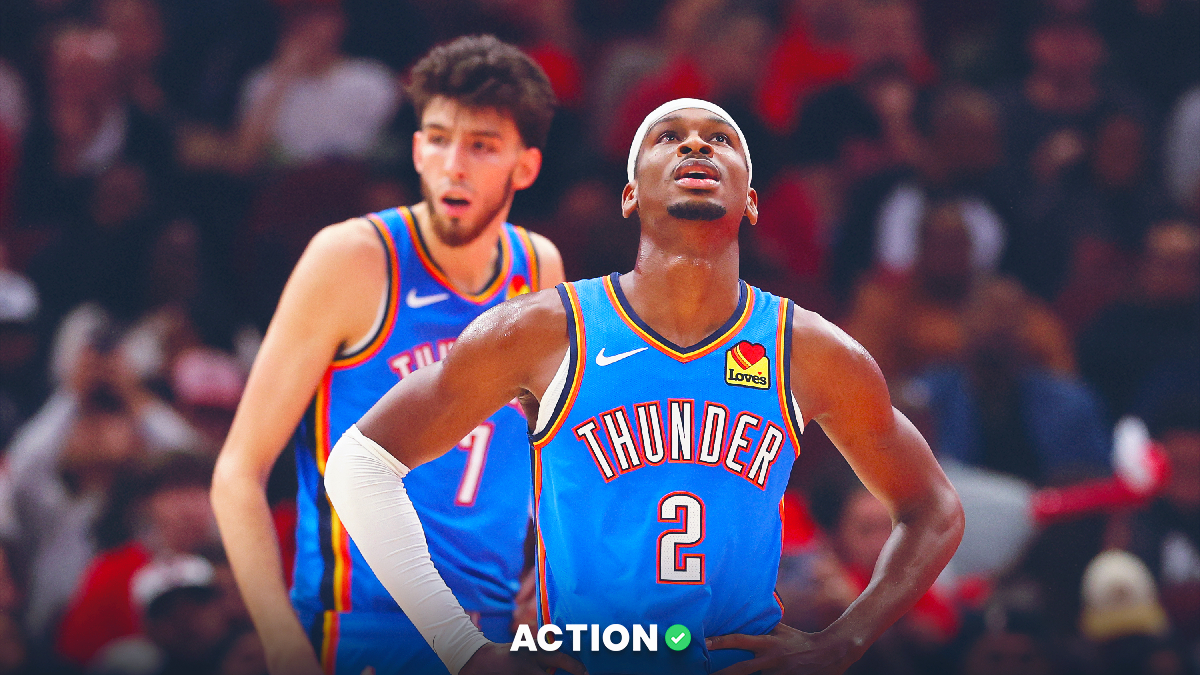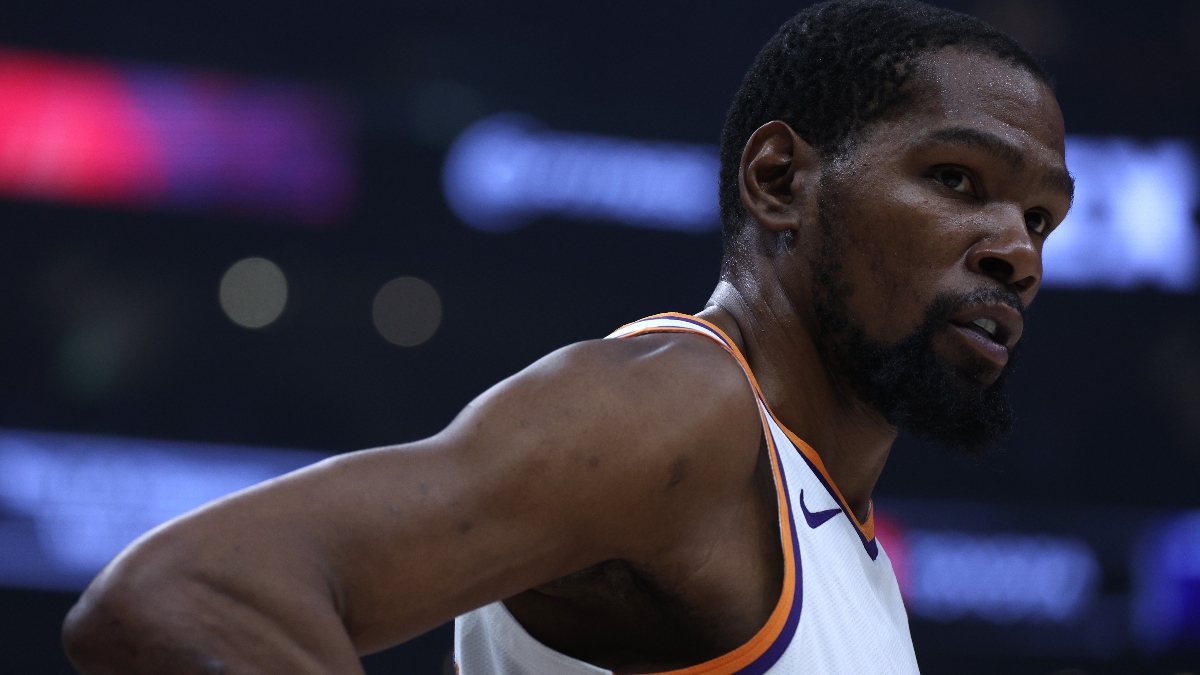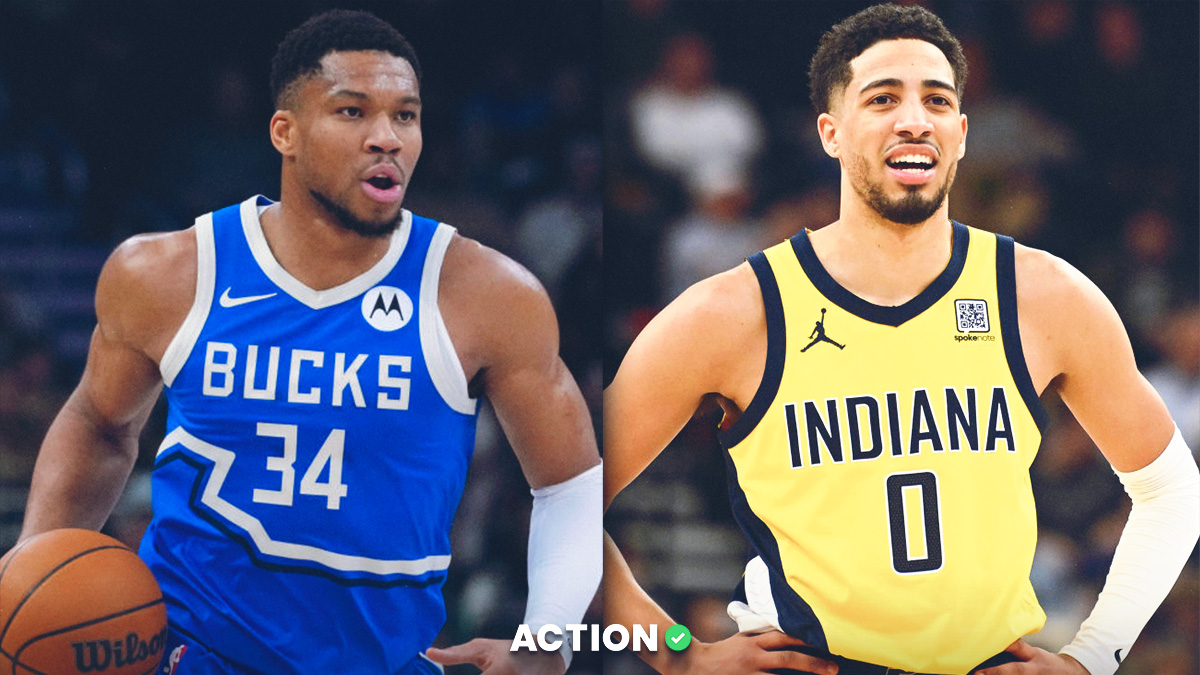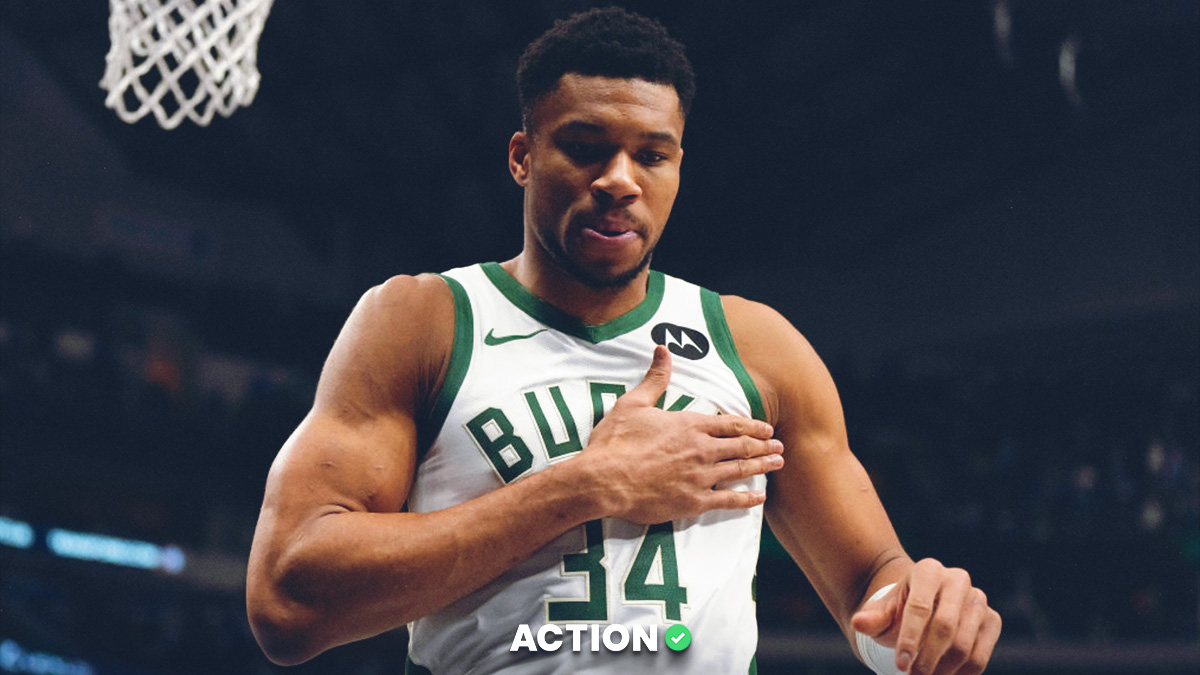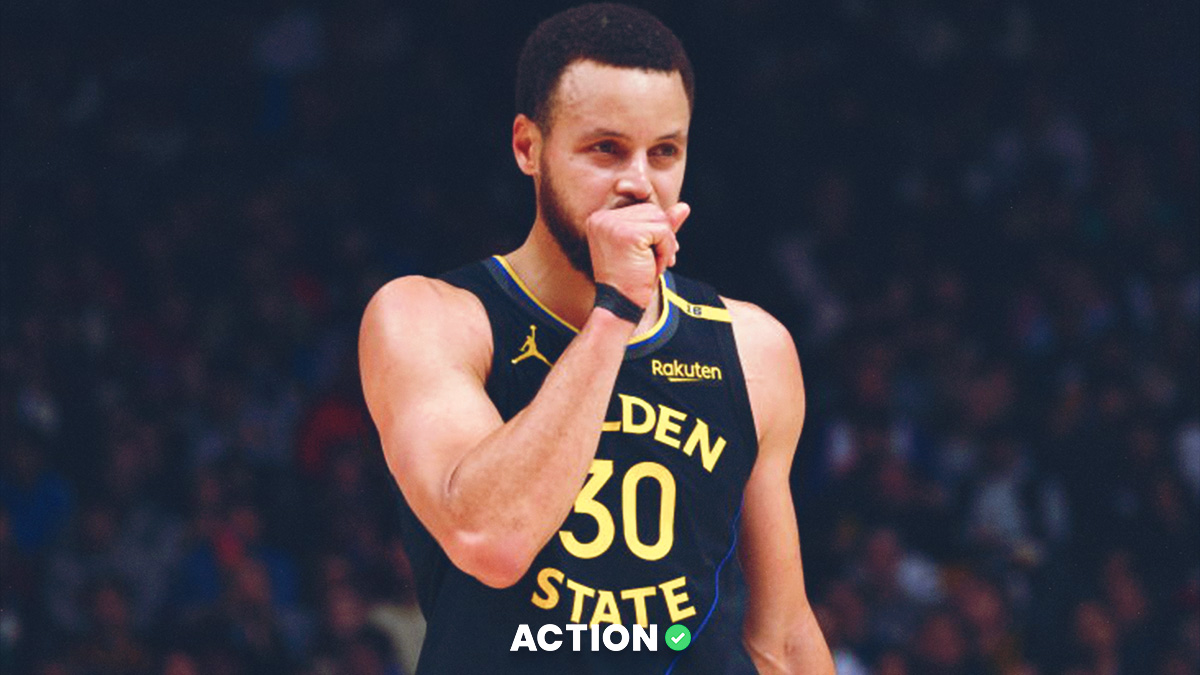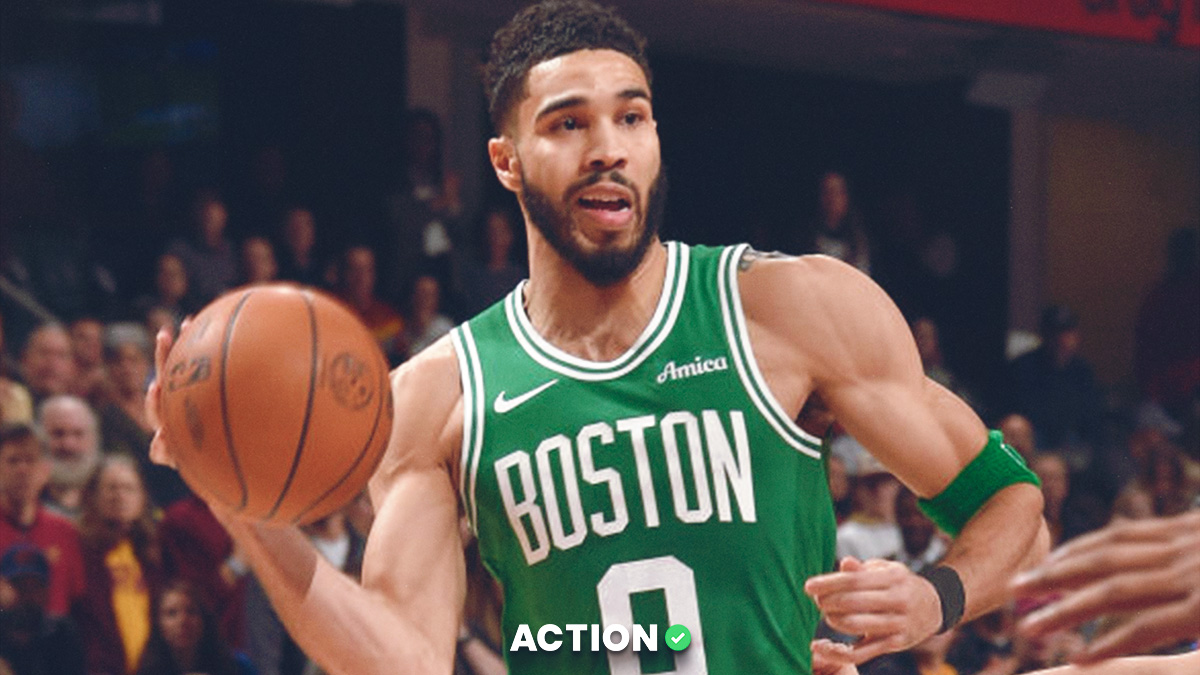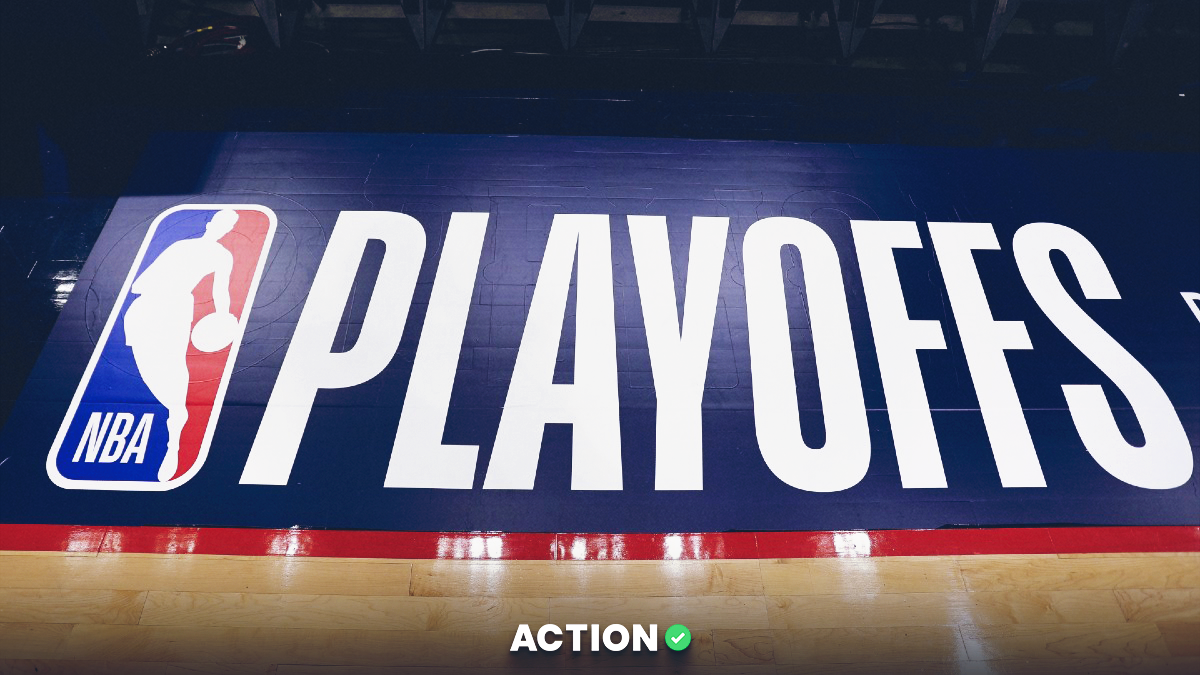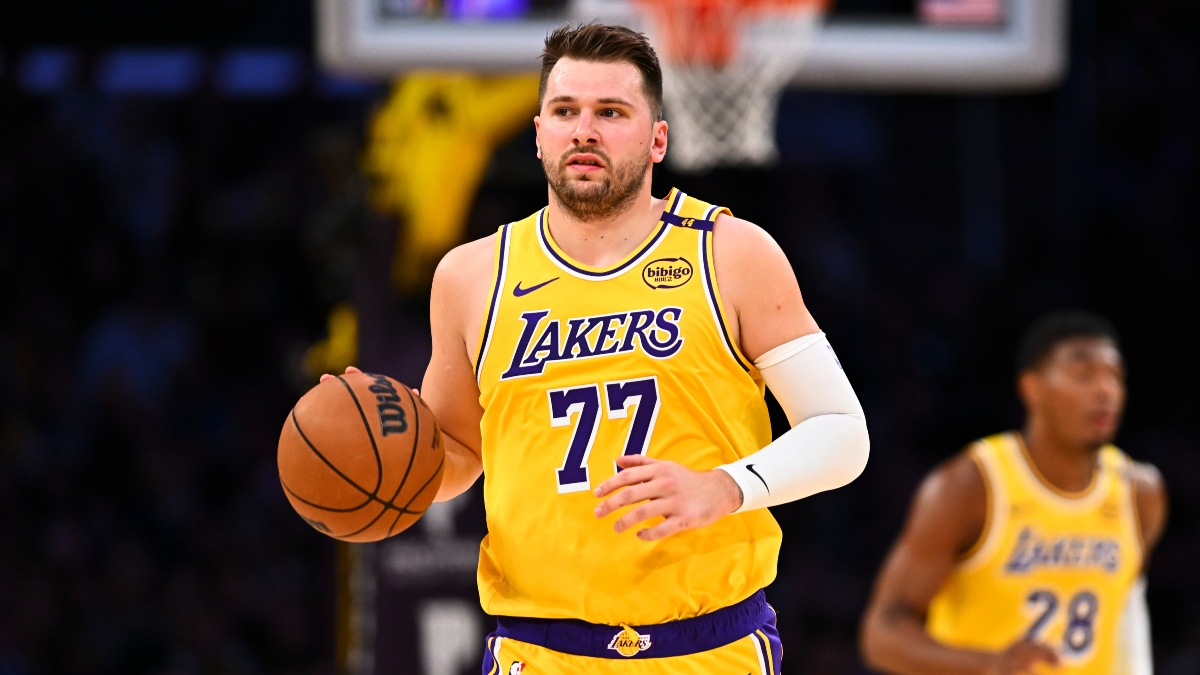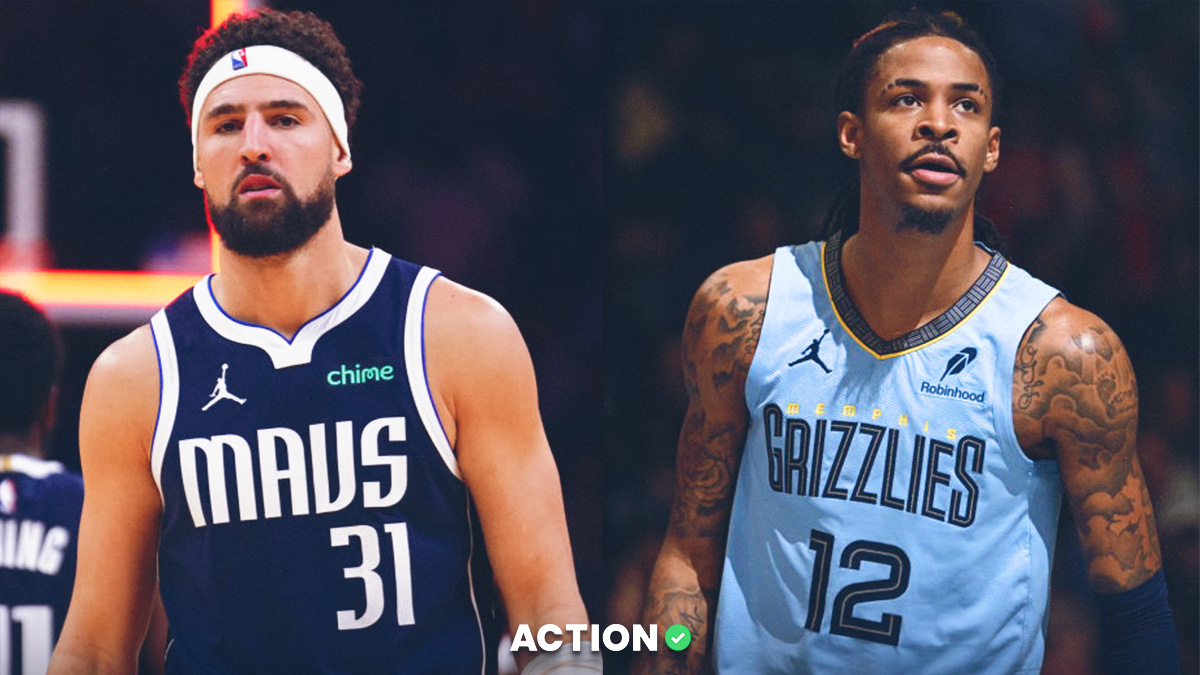Oklahoma City entered the season with a 44.5 win total line and utterly obliterated expectations by posting a 57-25 record. The Thunder swept a Zion Williamson-less Pelicans squad before falling to Luka Dončić and the Dallas Mavericks in the second round.
The playoff loss provided a roster diagnosis worthy of Greg House, so general manager Sam Presti understands the blueprint heading into the offseason. Presti can go in a number of directions with roughly $33 million in cap space plus a treasure chest of future draft capital.
The following offseason plan would drastically improve the franchise and vault the Thunder into the top tier of contenders.
Replace Josh Giddey in the Starting Lineup
Josh Giddey has a deep passing bag and quality court vision, which give him value as a distributor. However, his flaws are glaring at the moment and completely detrimental to OKC’s philosophies.
Giddey shot just 35% on wide open 3s during the regular season, and that plummeted to 20% against Dallas. Opponents were marking him with their center all year and having the big man sag into the paint, thus closing driving lanes for Shai Gilgeous-Alexander and Jalen Williams. It also allowed opponents to defend Chet Holmgren with a bigger forward and neutralize his typical mobility and off-the-dribble advantage. In other words, Giddey’s poor shooting and non-existent off-ball gravity stripped away the strengths of OKC’s stars.
Defensively, his lackluster lateral agility and underwhelming length often lets ball-handlers blow past him with relative ease. Giddey’s woes were only heightened in the Thunder’s switch-heavy, versatility-driven defensive scheme.
Essentially, he was ill-prepared to assume the role OKC needed based on his strengths and weaknesses. It’s definitely possible the 21-year-old morphs into an above-average NBA player, but it will not happen on this specific team. The Thunder must move on from Giddey, slide Williams to his more natural small forward position, and find a starting power forward that fits.
Lauri Markkanen is the ideal trade target. He shoots the lights out, rebounds well, can switch across numerous positions and does not need the ball to be highly effective. Unfortunately, the Utah Jazz appear to have understandably made him untouchable in negotiations and hope to build around him. With Markkanen’s name crossed off, Wizards forward Deni Avdija becomes the top realistic option for OKC.
Thunder Receive:
- Deni Avdija
Wizards Receive:
- Josh Giddey
- Ousmane Dieng
- 2025 1st-round pick via 76ers (top-6 protected)
- 2026 2nd-round pick via Thunder
- 2026 2nd-round pick via Warriors
Although Avdija cannot be classified as a star, he would be an elite role player and perfect fit for the Thunder. He played 54% of his minutes this season at small forward, while 42% were at power forward, per Basketball Reference. The fact that he can seamlessly play both forward positions is huge.
Offensively, he shot nearly 41% on catch-and-shoot 3s and was 83rd percentile in spot-up points per possession. Avdija boasts decent touch around the rim too and shot 73.7% within three feet of the basket – good for 62nd in the NBA among qualified players.
In addition to the necessary efficiency qualifications, the Wizards forward displayed intriguing playmaking upside. Of the 109 forwards with at least 1000 minutes this season, Avdija ranked 18th in high value assists per 75 possessions and 17th in secondary assists (via Basketball Index). Although he cannot act as a primary playmaker, the Thunder would be adding a valuable connective passer who moves the ball and creates beyond merely the simple read – a necessity in their offense.
On the other end, Avdija is a smart team defender who finished 22nd in the NBA (min. 1,000 minutes, via Basketball Index) in the metric defensive role versatility, which captures how frequently a player marked different offensive roles. Avdija’s adaptability combined with his ability to clamp in isolation would make him a huge asset for the Thunder’s defense.
He was also 30th across the league in defensive rebound percentage and 45th in defensive rebounds per 75 possessions. Considering OKC desperately needs help on the glass, it’s yet another check mark for the 6’9” forward.
Overall, Avdija’s complementary all-around skill set makes him a tantalizing target for the Thunder. The 23-year-old is also on a cheap, descending contract that will see him earn about 15M, 14M, 13M and 11M per year over the next four seasons, so he won’t be expensive once the Williams and Holmgren extensions begin.
As for why Washington accepts, they are a rudderless franchise in need of assets. Although losing Avdija definitely hurts, he is more of a connective piece that does not possess immense upside. Therefore, it’s worth rolling the dice on Giddey and Dieng – talented 21-year-old former lottery picks. For accepting the risk, they also snatch a first rounder in the promising 2025 draft along with a pair of 2026 seconds. If that’s not enough to convince the Wizards, then OKC could throw in another low-quality first without blinking.
Find a Backup Center
When Holmgren was on the court, OKC outscored Dallas by 21 points across six games. However, they couldn’t stay afloat during the non-Holmgren minutes and therefore lost the series. Jaylin Williams provides passing and shooting, but his inability to rebound and protect the rim at a high level compromise his value. At 6’10”, Jaylin Williams is a tad undersized too.
Assuming the Avdija trade above is executed, the Thunder would then have about $30 million in cap space remaining. Although it’s typically foolish to spend big on a backup center, it would behoove OKC to ignore the price tag and go big-game hunting this offseason.
New York Knicks center Isaiah Hartenstein sits at the top of the targets list. Few centers battle on the boards like Hartenstein, who was 10th in contested defensive rebound percentage of the 46 centers with at least 1,000 minutes played. His motor on the glass also adds put-back potential to OKC's offense.
Meanwhile, the 26-year-old is a hyper-disruptive rim protector despite not being a prolific shot-blocker. There were 131 players this season who defended at least 1,000 shots in the restricted area and Hartenstein held opponents to the second-lowest field goal percentage in that area behind only Holmgren. What a pairing that would make.
In addition to rebounding and rim protection, Hartenstein is an effective passer on short rolls and dribble handoffs. The Thunder require court vision and the ability to make advanced reads from their centers, so Hartenstein fits the bill.
He lacks a jump shot outside of 10 feet, which is not ideal. However, his strengths are too foundational and important for this to deter interest in him. OKC can work around this flaw; it’s not a deal-breaker.
Hartenstein will hit the market this summer as an unrestricted free agent. He apparently has a strong desire to re-sign with New York, but the maximum the Knicks can offer is a four-year, $72 million deal. This is where Presti steps in and gives him a tour of the vault. A two-year deal paying him $24 million next season and $22 million in 2026 will likely be enough to lure him away.
Is it a slight overpay from a theoretical perspective? Yes, but OKC has to considerably beat New York’s offer or Hartenstein has no reason to leave. The Thunder own plenty of cap space with numerous key players on rookie contracts or team-friendly deals, so they can afford to take the hit.
Why a two-year deal? It expires the moment that Jalen Williams and Holmgren’s extensions will begin, so the Thunder take back financial flexibility to re-mold the roster around three immense contracts. On the other side, Hartenstein plays for a legitimate championship contender for two seasons and potentially wins a ring. Then, he becomes a free agent during his prime when teams can offer more money because of the increased salary cap.
Essentially, this two-year deal with OKC offers far more financial upside than locking himself into a long-term contract with New York.
If Presti cannot swing Hartenstein, then he should make the same offer to Nets center Nic Claxton. He too provides elite rim protection and rebounding with more versatility, although his passing is less developed.
Complete the Bench
Despite trading for Avdija and signing Hartenstein, the Thunder would still need another power forward and more guard depth. They would have the 12th pick plus about $6 million in cap space remaining, which should be enough to address both needs.
Drafting forward Tristan da Silva may be considered a reach in a vacuum, but Jalen Williams was also questioned when selected 12th overall. At the end of the day, results are what matter, and da Silva certainly obliges. The Colorado forward stands 6’10” and shot nearly 40% from deep on decent volume over the past two seasons. Additionally, he is an efficient interior scorer with connective passing chops. He doesn’t need the ball to add offensive value, which will be the case for the vast majority of his NBA possessions.
Da Silva also rebounds well and understands defensive rotations at a very high level. He’s not a lockdown isolation defender, but da Silva will be a smart, impactful team defender. Given OKC’s defensive identity, that’s a huge draw.
Based on his skills, da Silva would be a surefire top-10 pick in the draft. However, he just turned 23, so teams will justifiably view da Silva as close to a finished product and pass over him for younger, shinier prospects. That’s fine with the Thunder though, who get four cheap years of immediate, quality backup forward play.
Finally, signing Aaron Holiday to a one-year, $6 million contract would complete the depth chart. He’s a career 38% 3-point shooter who improved his finishing around the basket last season. Holiday produced an outstanding 1.03 points per possession as the pick-and-roll ball handler too. It’s possible that another team poaches Holiday at a slightly larger price. If that’s the case, then perhaps Justin Holiday, Delon Wright or Jordan McLaughlin could be viable pivots.
Final Roster Outlook
Overall, OKC’s rotation would be the following after all of these moves:
- Shai Gilgeous-Alexander, Luguentz Dort, Jalen Williams, Deni Avdija, Chet Holmgren
- Cason Wallace, Isaiah Joe, Aaron Wiggins, Tristan da Silva, Isaiah Hartenstein
- Aaron Holiday, Lindy Waters III, Kenrich Williams, Jaylin Williams
It’s a roster riddled with two-way excellence and few discernible flaws. They possess interior size, a stable of perimeter defenders, plenty of playmaking and enough scoring to break down playoff defenses. This group would have the next two years to win a championship before the financial situation becomes tough. Presti’s picks can reload the chamber with cheap role players and reset the cycle though.
They may not be the favorites (hello, Boston), but this version of the Thunder would certainly make the argument.


